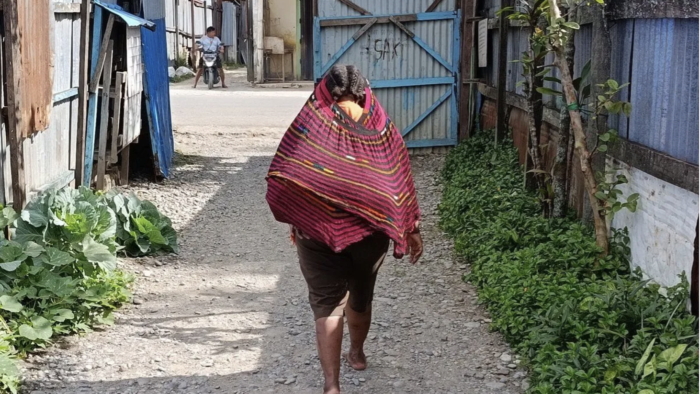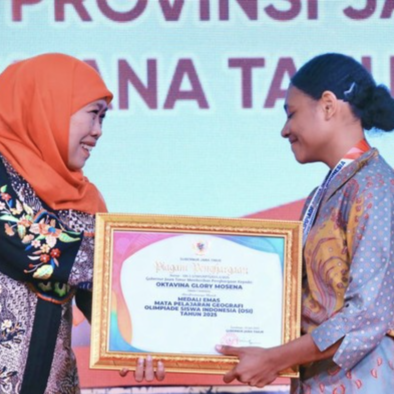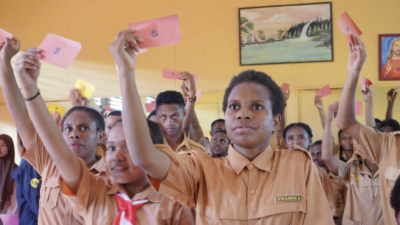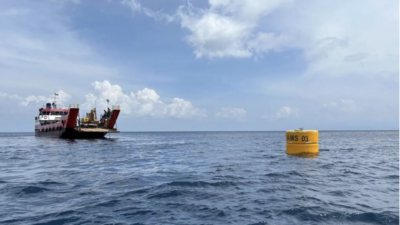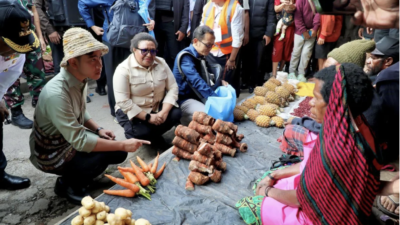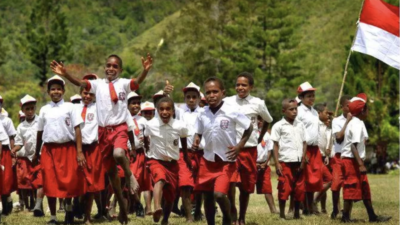The Warm Embrace of Papuan Highland Women’s Cultural Legacy
“This tradition has existed since long ago and has been passed down by our elders until today.”
— Maria K Logo, Cultural Observer of Noken from the Papuan Highlands
🌿 A Legacy Woven from Head to Heart
In the cool valleys of the Papuan Highlands, a noken is more than a traditional bag — it is an extension of a mother’s soul. Mama Tabuni from Tolikara still gently carries her grandchild inside a noken, suspended from her head — a practice rich in tradition and meaning.
This act of carrying a baby in a noken is known among the Dani tribe as Su Elege Aleka, where:
- “su” means noken,
- “elege” means child,
- “aleka” means a place to carry or hold.
Through Su Elege Aleka, a child is not just nurtured, but becomes part of the rhythm of daily life — planting, harvesting, weaving, and caring for the home, all while cradled in tradition.
👣 The Mother as Root, the Noken as Branch
In Papuan Highland society, women carry dual responsibilities — as mothers, wives, farmers, and cultural guardians. Even while breastfeeding, they tend the land. The noken becomes the answer, allowing them to work while lovingly keeping their child close.
Despite modern changes, this tradition remains strong. Though baby carriers are available in stores, highland women continue to rely on noken — a symbol of love and identity.
🔥 Balance of Sensation: Warm, Fragrant, and Safe
Inside the noken, babies are laid on layers of wangkika (young banana leaves) and yabe (fragrant leaves), which help regulate body temperature and comfort. These natural materials balance warmth and coolness, and provide a pleasant scent — even when temperatures drop to 9–15°C in the highlands.
When these leaves are unavailable, cloth is used as a substitute — a small adaptation that retains the spirit of tradition.
🛠️ A Labor of Love and Precision
Noken is not mass-produced — it is handwoven with devotion. Crafting a special noken for a baby can take two to four weeks or longer, depending on the artisan’s skill. Nine native plants are traditionally used, such as digi, honawun, yakik, aberek, and isuwar, but not all grow easily, making raw materials increasingly scarce.
To support this cultural heritage, the Jayawijaya local government allocated Rp50 million to help women in Kurulu District grow 1,500 trees for noken production. Only 37 trees survived — but the community’s determination remains unwavering.
🧶 More than Tradition — It Is Identity
Noken and Su Elege Aleka are not remnants of the past — they are a way of life. In every suspended noken, there is strength, motherhood, and a deep connection to land and ancestry.
Children are placed inside the noken from as early as one week of age until they are able to walk. It becomes their first cradle, their first shelter from nature’s harshness. Whether in remote villages or urban areas, noken is still worn, cherished, and respected.
“As long as Papuan women continue to weave and cradle children in the noken, our cultural soul will live on.”
📍 Editor’s Note:
This article is based on ANTARA’s

